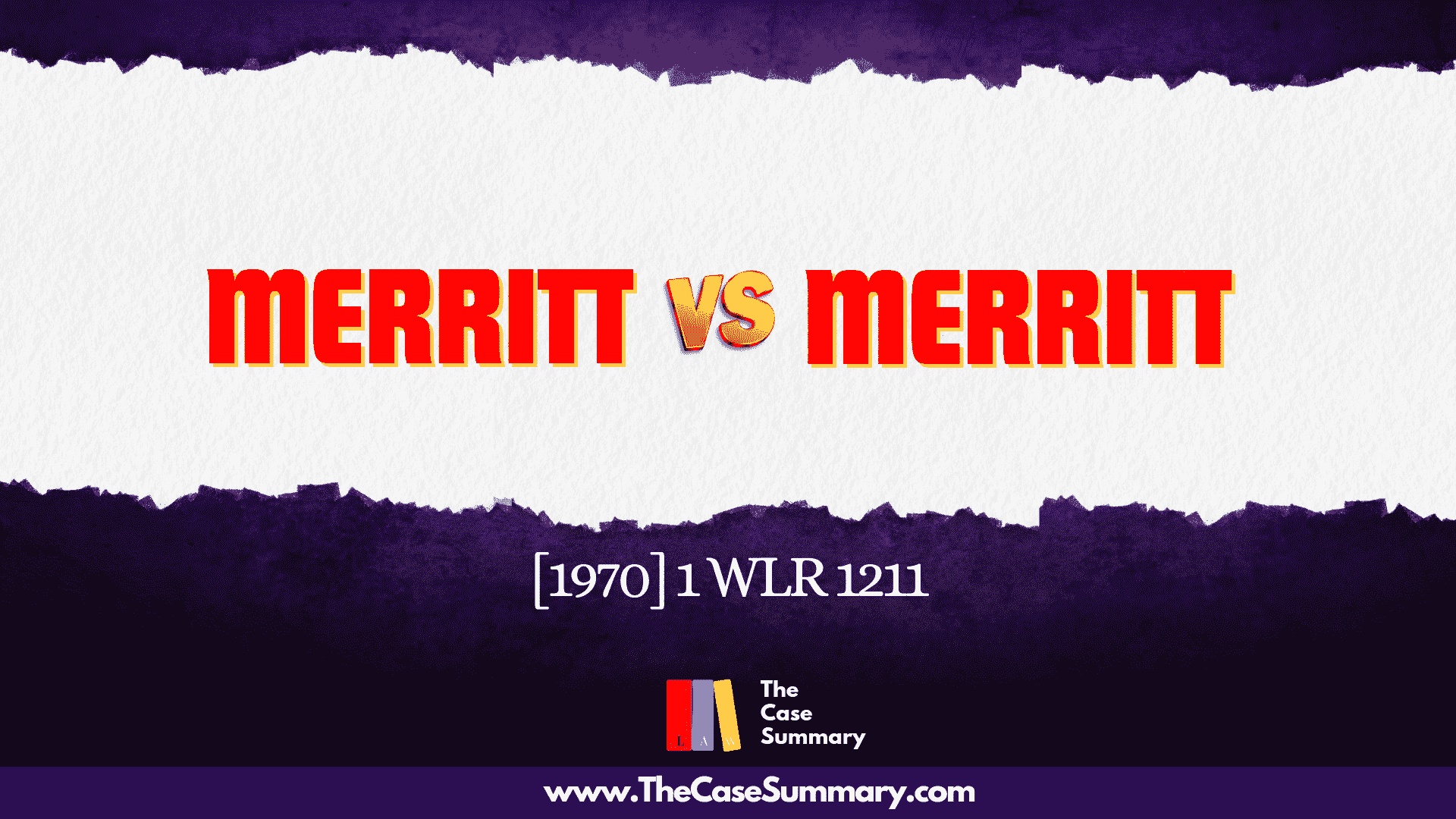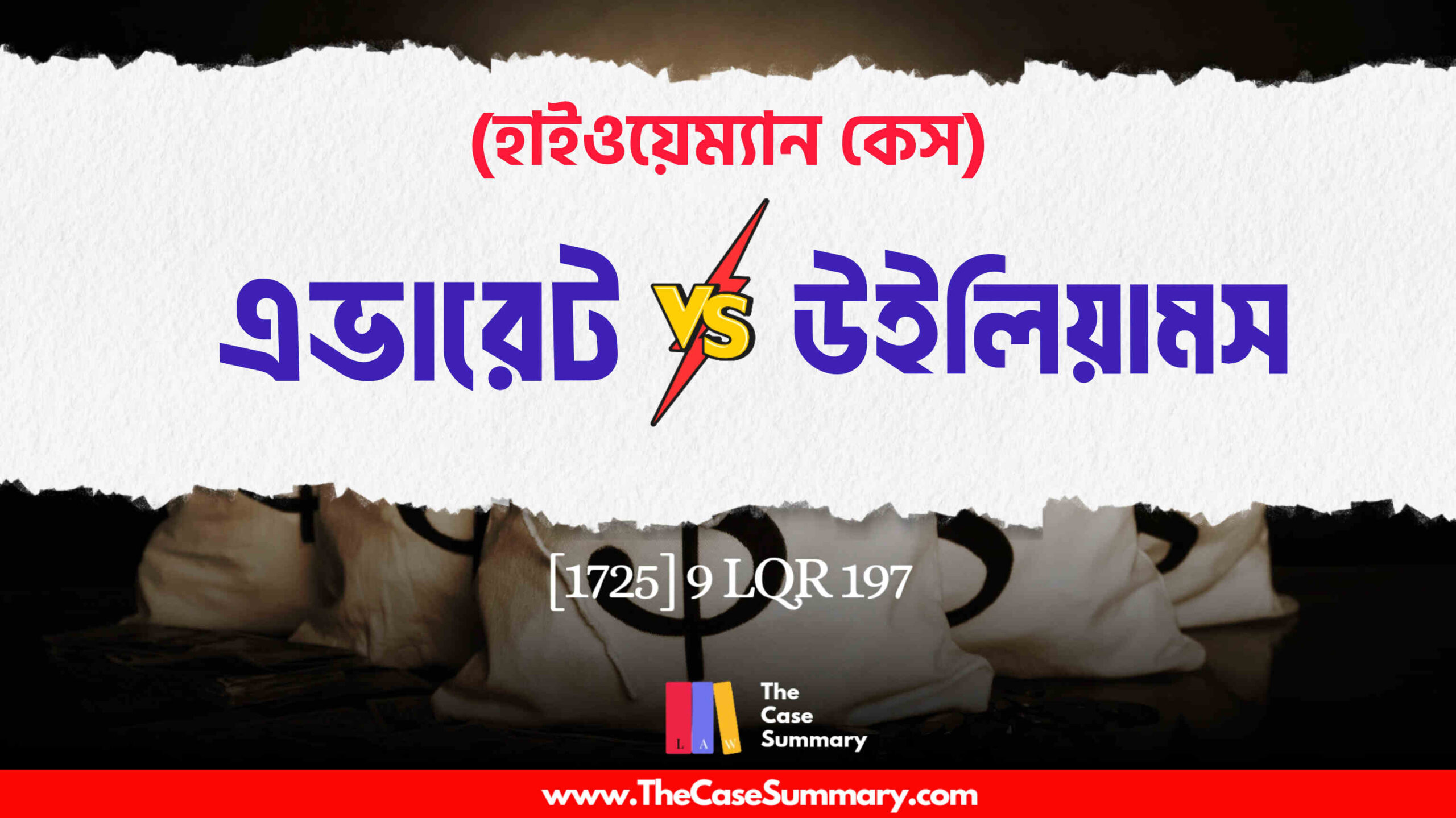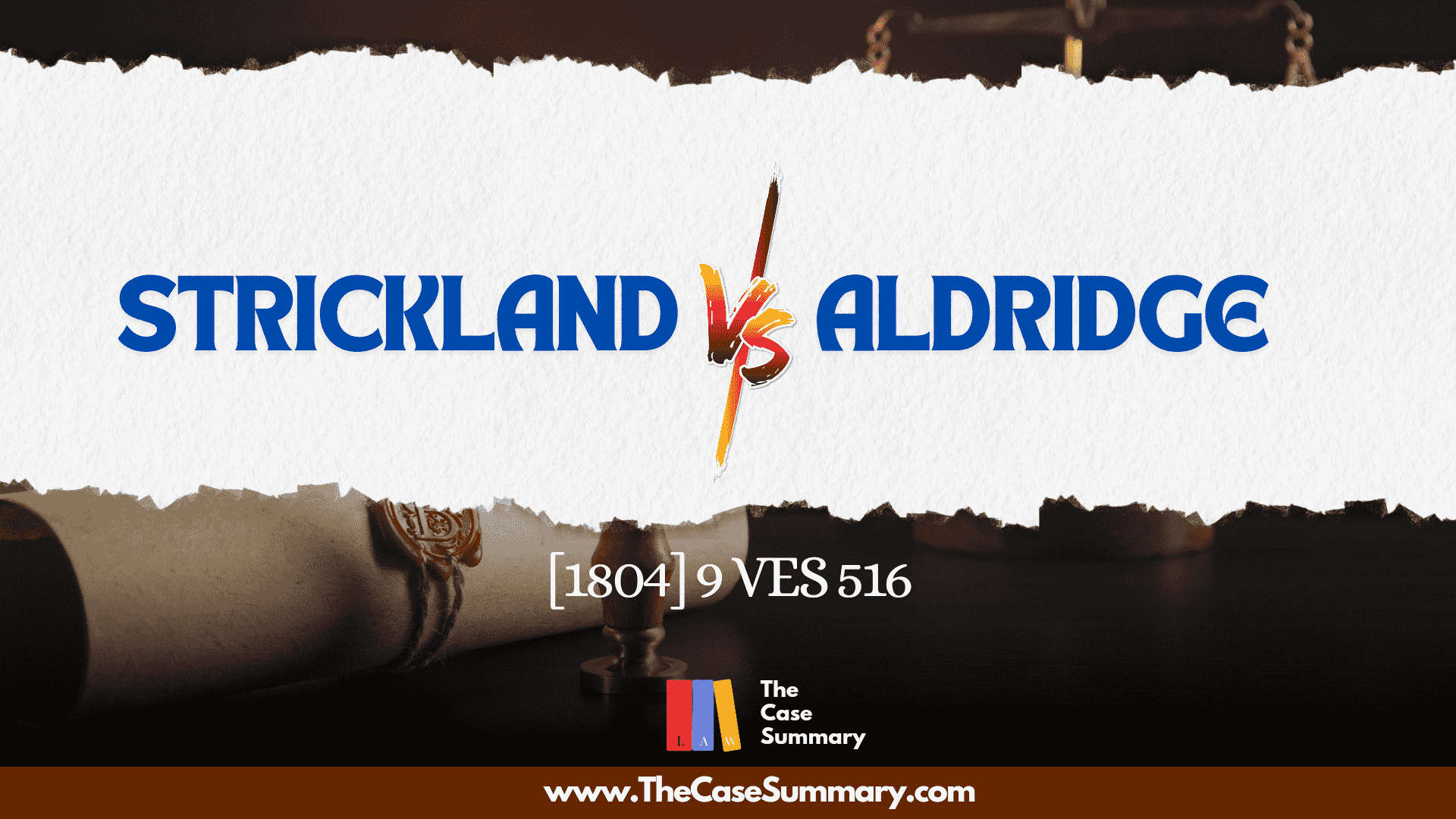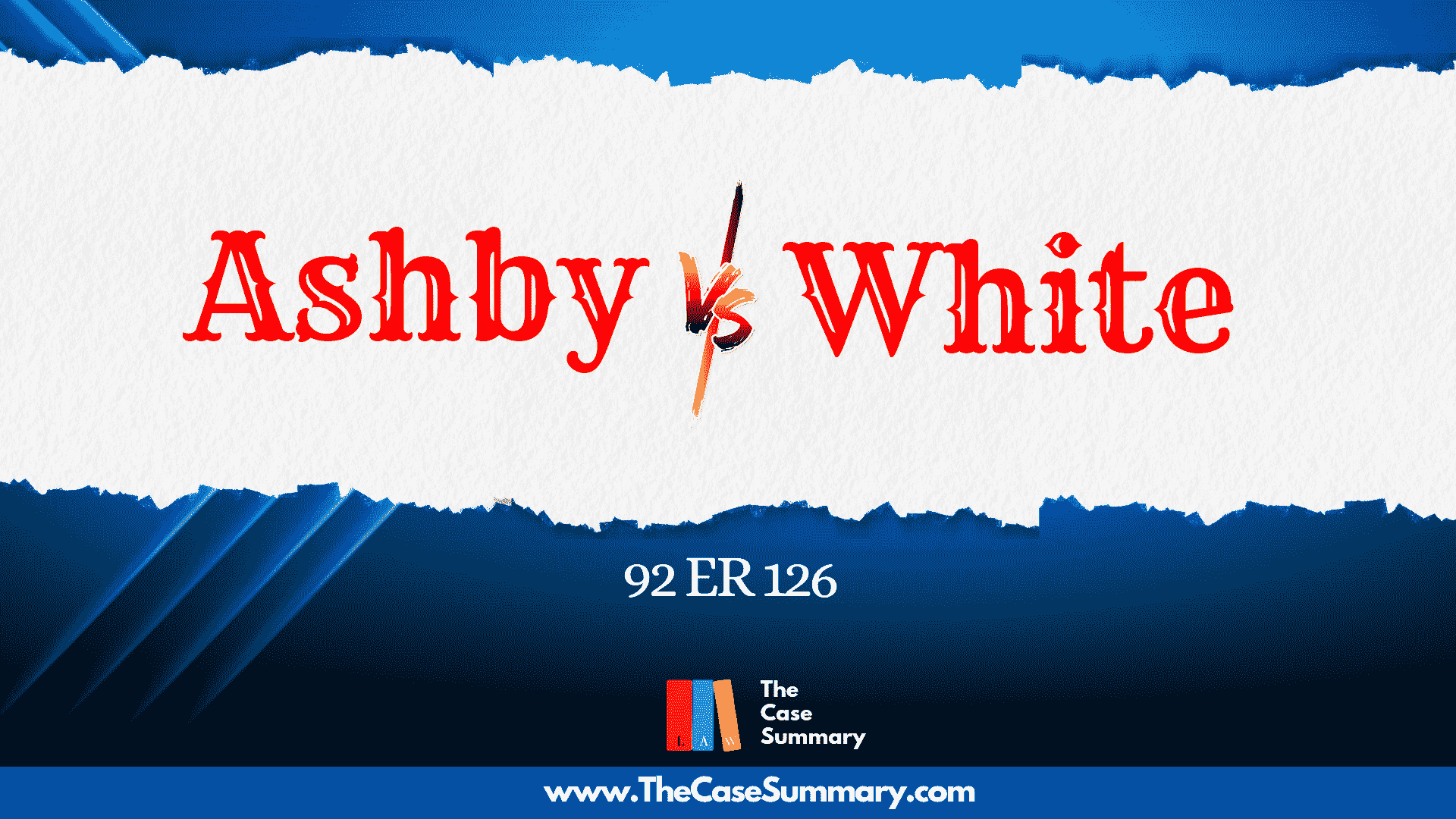Merritt vs Merritt (1970)
Reference : [1970] 1 WLR 1211
Jurisdiction : England and Wales
Appellant : Mr. Merritt
Respondent : Mrs. Merritt
Facts :
Mr. and Mrs. Merritt married in 1941. They built a house in 1949, funded with a mortgage and registered in the husband’s name. They later agreed that the husband would transfer the house into their joint names. However, before this occurred, Mr. Merritt deserted his wife to live with another woman. He and his wife came to an agreement that he would pay her 40 pounds per month, out of which she would pay the amount outstanding on the mortgage (180 pounds). When the mortgage was paid off, the husband would transfer his share of the house to his wife, and she would become the sole owner. This part of the agreement was written down.
Mrs. Merritt paid off the mortgage and successfully acquired a declaration that the house belonged to her. However, Mr. Merritt later refused to transfer the house. He argued that the parties did not intend to be legally bound due to the domestic nature of their relationship. So, Mr. Merritt appealed.
Issues : Did the parties intend to be legally bound by the agreement to transfer the house?
Decisions :
Mr. Merritt’s appeal was unsuccessful. The court reasoned that when parties are in the process of separating or are separated, the presumption of there being no intention to create legal relations does not apply. The arrangement was sufficiently certain to be enforceable.
In this case, it was mentioned on the paper,
“In consideration of the fact that you will pay all charges in connection with the house at 133 Clayton Road, Chessington, Surrey, until such time as the mortgage repayment has been completed, when the mortgage has been completed, I will agree to transfer the property into your sole ownership.
Signed,
John Merritt.
25th May, 1966″
So, the paying of the mortgage was ample consideration for Mr. Merritt’s promise. And this was sufficient evidence that the parties intended to be legally bound by the facts. Thus, the court found the agreement to be binding and dismissed the appeal.
Relevant Maxim :
Equity Follows The Law : Equity looks to the intent rather than the form; Equity looks on that as done, which ought to be done; Equity acts in personam. As it is required in law that there must exist an intention to create a legal relation for an agreement to be enforceable, equity also follows this rule and requires the same. The law of equity also applies here to give fair and just judgment.
Author :
1. Farah Arifin
Note : The Case Summary is a platform by the law students, for the law students. We aim to summarize the facts and decisions of various important cases in both Bangla and English with utmost caution. However, this platform is in no way a replacement for going through the complete judgements by the law students and we discourage any learner from relying on case summaries alone. Thank you



